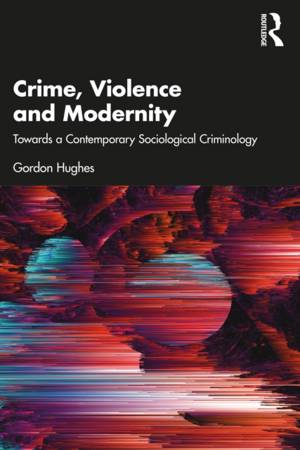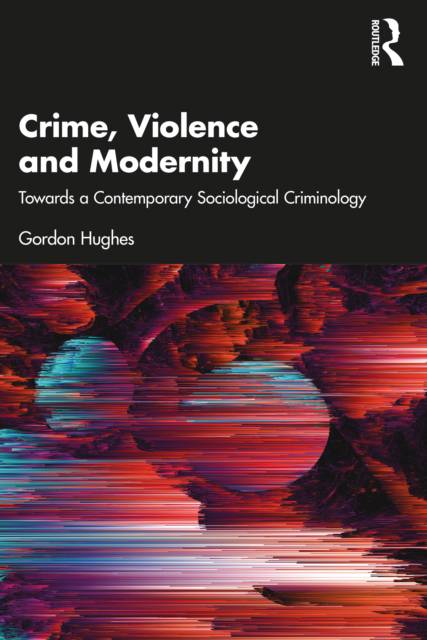
- Afhalen na 1 uur in een winkel met voorraad
- Gratis thuislevering in België vanaf € 30
- Ruim aanbod met 7 miljoen producten
- Afhalen na 1 uur in een winkel met voorraad
- Gratis thuislevering in België vanaf € 30
- Ruim aanbod met 7 miljoen producten
Crime, Violence and Modernity
Connecting Classical and Contemporary Practice in Sociological Criminology
Gordon HughesOmschrijving
This book makes an original contribution to reconnecting criminological inquiry to the core concerns of the classical sociological imagination and to the intellectual resources of comparative and historical sociology. Throughout the book Hughes challenges the long-standing division of labour in criminology and sociology more generally between 'theory', 'method' and 'research'. Accordingly, the author's concerns here are as much about the craft and working methods of being a sociological criminologist as it is about theory and concepts.
In the first half of the book, the key conceptual and methodological premises of the classical sociological tradition are outlined and the latter's potential for revitalizing contemporary criminological research-theorizing are assessed. These chapters also address the debate regarding the relationship between crime and violence, and that of modernity and the Western 'civilizing process'. In the second half of the book, three areas of current criminological inquiry are explored through the lens of the long-term, process-oriented and radically relational perspective of contemporary Weberian and Eliasian scholarship. Among the areas of comparative investigation explored here are street crime, gangs and urban violence, genocide and murderous ethnic cleansing, warfare, colonialism and human rights.
Written in a clear and direct style this book will appeal to students and scholars of criminology, sociology and all those interested in what a sociological lens brings to the practices of contemporary criminology.
Specificaties
Betrokkenen
- Auteur(s):
- Uitgeverij:
Inhoud
- Aantal bladzijden:
- 242
- Taal:
- Engels
Eigenschappen
- Productcode (EAN):
- 9780367768942
- Verschijningsdatum:
- 27/04/2022
- Uitvoering:
- Paperback
- Formaat:
- Trade paperback (VS)
- Afmetingen:
- 156 mm x 234 mm
- Gewicht:
- 358 g

Alleen bij Standaard Boekhandel
Beoordelingen
We publiceren alleen reviews die voldoen aan de voorwaarden voor reviews. Bekijk onze voorwaarden voor reviews.









